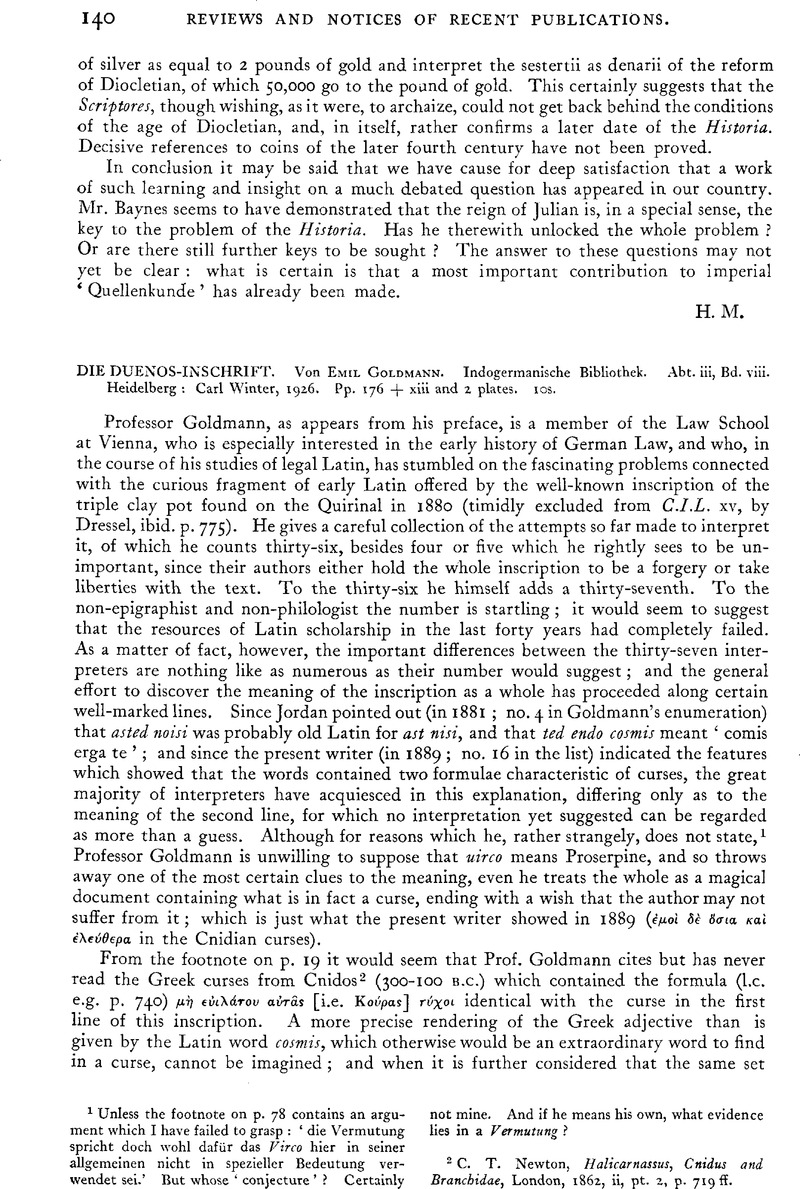No CrossRef data available.
Article contents
Die Duenos-Inschrift. Von Emil Goldmann. Indogermanische Bibliothek. Abt. iii, Bd. viii. Heidelberg : Carl Winter, 1926. Pp. 176 + xiii and 2 plates. 10s.
Published online by Cambridge University Press: 24 September 2012
Abstract

- Type
- Reviews and Notices of Recent Publications
- Information
- Copyright
- Copyright © R. S. Conway 1926. Exclusive Licence to Publish: The Society for the Promotion of Roman Studies
References
page 140 note 1 Unless the footnote on p. 78 contains an argument which I have failed to grasp : ‘die Vermutung spricht doch wohl dafür das Virco hier in seiner allgemeinen nicht in spezieller Bedeutung verwendet sei.’ But whose ‘conjecture’ ? Certainly not mine. And if he means his own, what evidence lies in a Vermutung ?
page 140 note 2 Newton, C. T., Halicarnassus, Cnidus and Branchidae, London, 1862, ii, pt. 2, p. 719 ffGoogle Scholar.
page 141 note 1 In the examples quoted of the general meaning ‘young woman’ in the Lexica not one will be found in which uirgo is not especially appropriate to the context; as in Ovid, Her. 6, 133 Medea is called adultera uirgo ‘even when a maiden seeking an unlawful love’; and in Sil. 3, 420, 424, 435, dilectae uirginis ‘whom he had loved when she was a maiden’; above all in Verg. Ecl. 6, 47, 52 when Pasiphae is the ‘infatuated maiden’ who rushed to her own perdition.
page 141 note 2 This explains admirably the long standing riddle of the -tt- in mitto beside the -ss- of the partic. and the single -d- in Germ. meiden. Two verbs, xmeito, xmeitere, and xmit(i) to, xmit(i)tare have been run into one, just as lauare and lauere, uotare and xuetere and the like.




